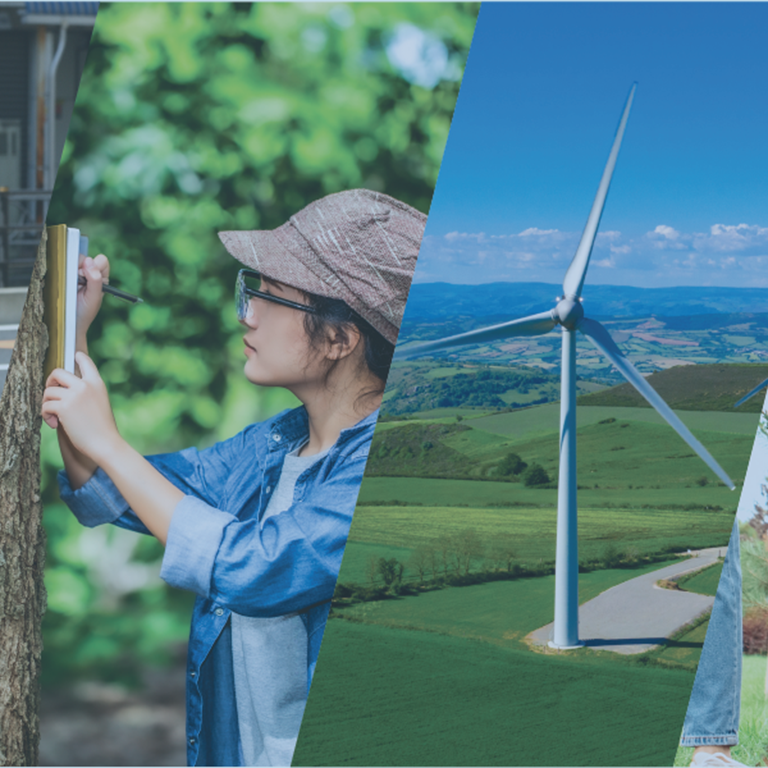Nearly two-dozen Indiana University faculty and students presented their research at the Environmental Resilience Institute’s Research Symposium on May 11 at the Indiana Memorial Union. An annual event, the symposium showcases the work of IU’s environmental resilience research community on topics ranging from the natural sciences, to human systems, to environmental policy, to education.
This year’s event included talks and presentations on energy insecurity, seed selection and resilience of farmers in Eastern Africa, the impact of light pollution on songbirds, managing invasive species in Indiana forests, and more.
“There are so many faculty and student researchers across the IU system who care about climate change and the environment, but it’s rare to see that breadth of knowledge and activity in one place,” said ERI Managing Director Sarah Mincey. “This symposium is a chance to take it all in and perhaps spark new ideas and collaborations in the process.”
For Alora Cain, a recent master of public affairs graduate from the O’Neill School of Public and Environmental Affairs, the event was an opportunity to share findings of an analysis of climate experts in the US and India on what to prioritize to combat climate change. The study found many similarities in priorities and a few key differences in perceived barriers. US experts were more likely to identify policy implementation, political process, and public support as hurdles and Indian experts were more likely to view innovation and adoption as challenges.
“I hope policy makers and researchers can use our findings to identify different solutions within the various sectors of our lives which are impacted by climate change,” Cain said. “Looking forward, accounting for the perspectives of experts in both countries can help guide our efforts to ensure the most vulnerable populations are not left out of these important conversations.”
Tom Kenote Jr., a member of the Menominee Tribe in Northwest Wisconsin and director of the Sustainable Development Institute at The College of Menominee Nation, provided the keynote talk, sharing the Menominee Theoretical Model of Sustainability (MTMS), a framework to understand lessons of Indigenous sustainability as practiced by the Menominee Tribe.
“This deep sense of place that exists within the MTMS is based off the relationship between the land and the Menominee People,” Kenote Jr. said. “The Menominee Reservation can be seen from outer space due to the density of our forest. This is a testament to Indigenous knowledge.”
Highlighting the important obligation to teach young Hoosiers about the impacts of environmental change, Adam Scribner, director of STEM education initiatives at Indiana University’s School of Education, shared the results of providing professional development to K-12 teachers through the Educating for Environmental Change (EfEC) program.
EfEC workshops include training for public school teachers on biodiversity loss, soil and water quality challenges, invasive species, engineering and policy solutions, and a collection of climate change topics. After 5 years of workshops, every participating teacher has indicated the training increased their understanding of climate change and that they expected to apply what they learned in their classroom, Scribner said.
Other presenters shared research on effective strategies for managing urban mosquito populations, the bright future of Indiana’s nut growing industry, and the robust history of energy policy as it relates to the US civil rights movement.
A recording of the keynote presentation is posted below.
About the Environmental Resilience Institute
Indiana University’s Environmental Resilience Institute brings together a broad coalition of government, business, nonprofit, and community leaders to help Indiana and the Midwest better prepare for the challenges of environmental change. By integrating research, education, and community, ERI is working to create a more sustainable, equitable, and prosperous future. Learn more at eri.iu.edu.






